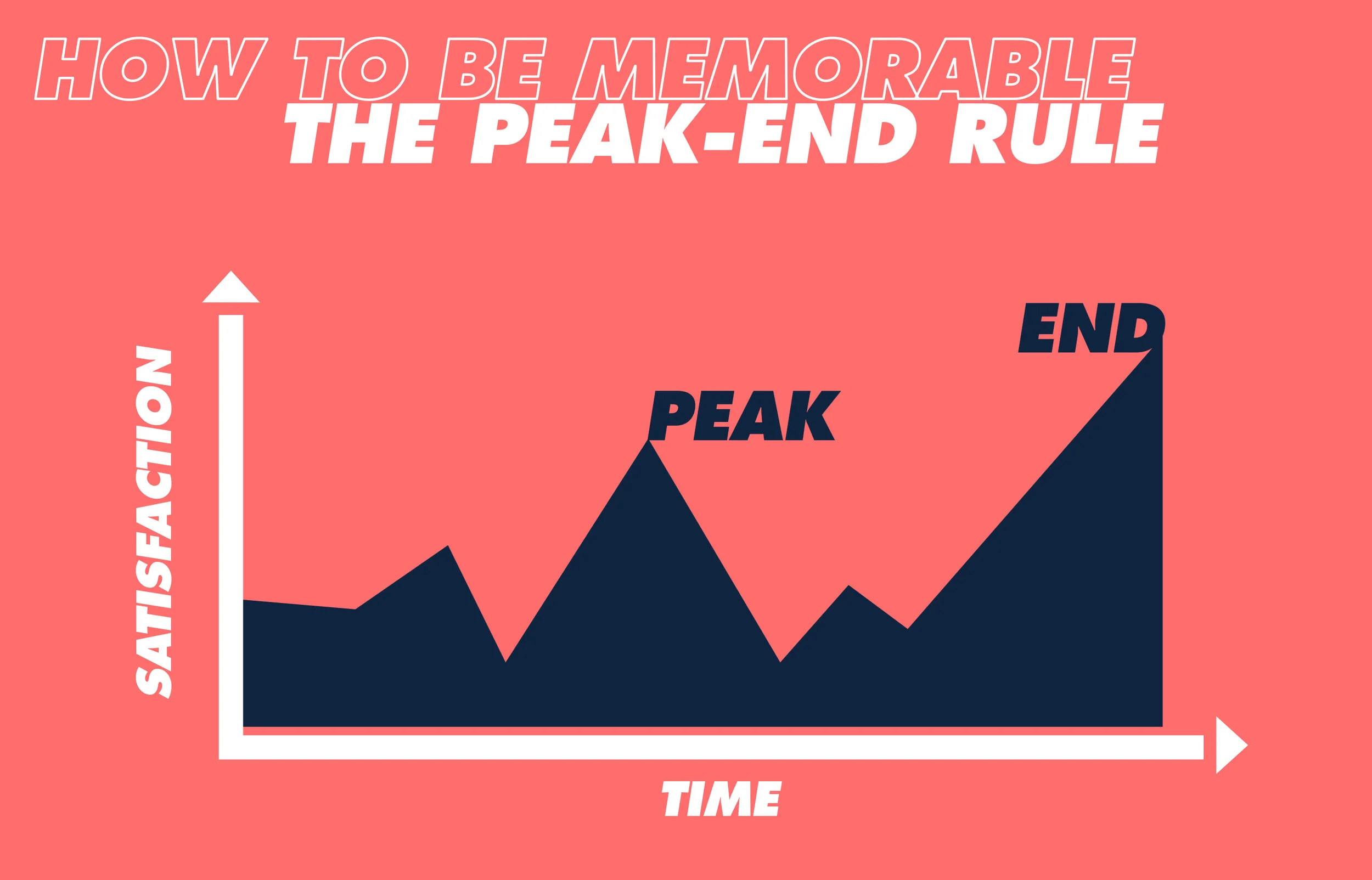The 'Peak-End' Rule
Our memory works in mysterious ways when it comes to recalling experiences.
Have you ever wondered why all Hollywood movies seem to reach a crisis point midway through only to resolve it all with a happy ending?
It seems that filmmakers have intuitively known for a long time what psychology has only recently discovered.
It’s called the ‘peak-end rule’ and it was coined by the Nobel Prize winning Israeli psychologist Daniel Kahneman. He describes it by saying,
“The peak–end rule is a psychological heuristic in which people judge an experience largely based on how they felt at its peak (i.e. its most intense point) and at its end, rather than based on the total sum or average of every moment of the experience.”
In his original experiment to prove his hypothesis, participants were subjected to both of the following experiences:
Their hand submerged in 14℃ ice water for 30 seconds.
Their hand submerged in 14℃ ice water for 30 seconds followed by an additional 30 seconds with the water heated up to 15℃.
When asked which experience they would prefer to repeat, respondents counter-intuitively opted for the second, longer one. That is, exactly the same amount of time in the colder water, only to end a little warmer.
Sounds bizarre right?
And yet when you’re asked to recall a recent holiday you won’t recall the whole trip but just the best or worst part and the very end.
To conclude, keep in mind that experiences are mostly judged by their 'peaks' and 'end'.
If you want whatever it is that you're creating to be remembered positively, make sure you heed this advice.
———————————————————————————————————
Want to better understand Behavioural Economics? Learn more with Ogilvy and Rory Sutherland here.






